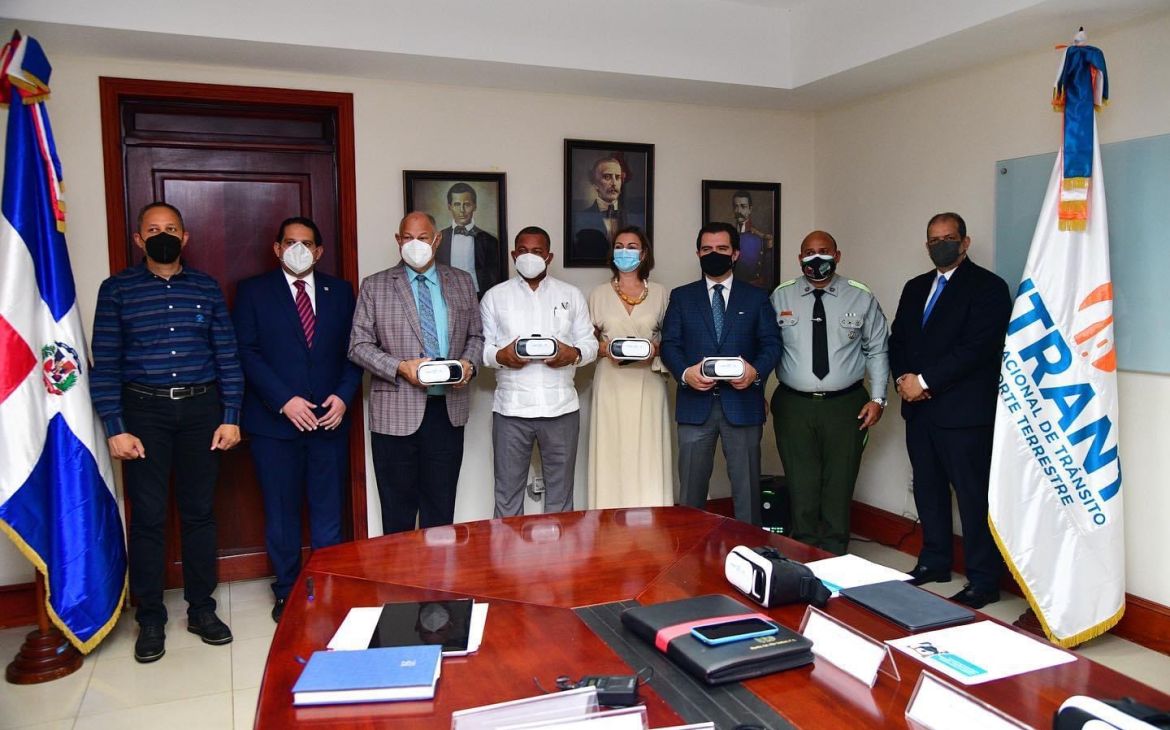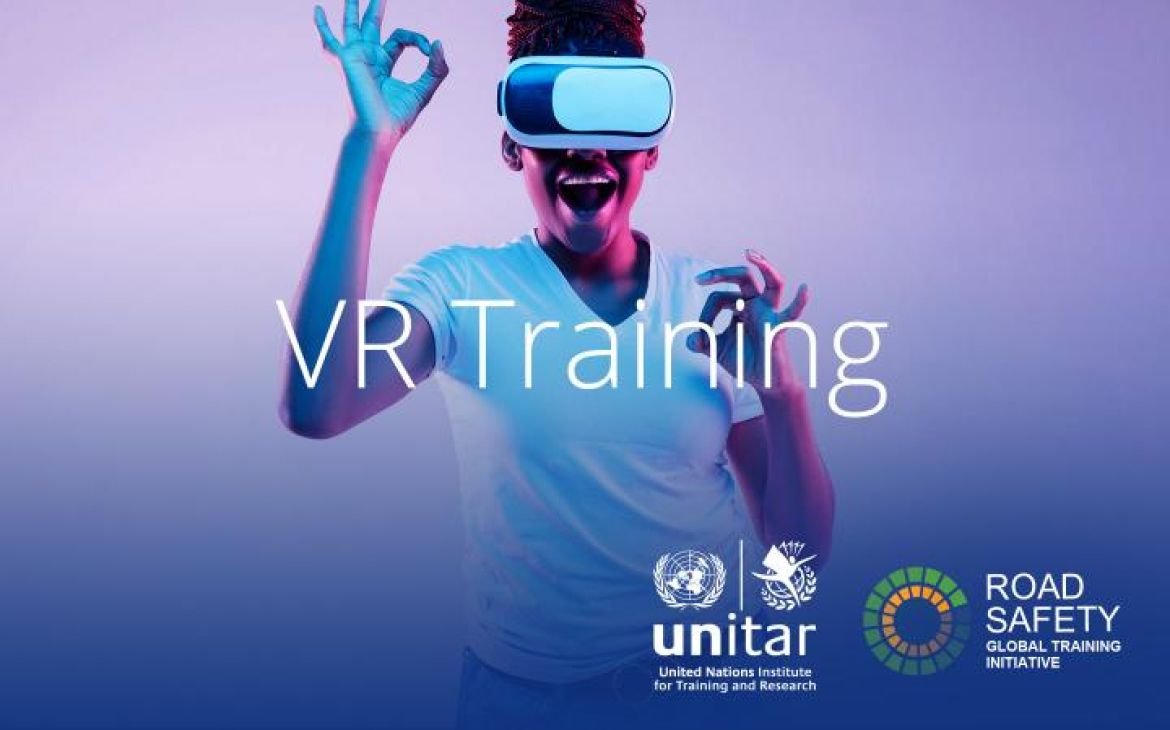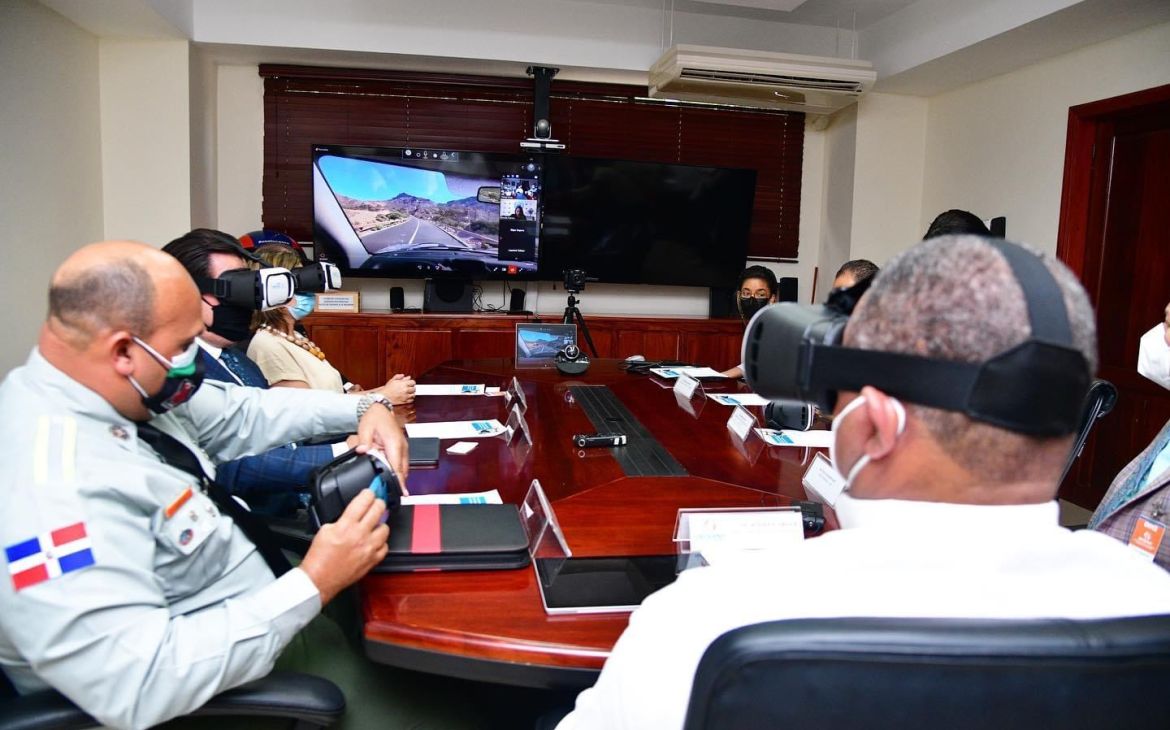June 2021, Geneva, Switzerland - In line with UNITAR strategic objective to optimize the use of technologies and with the aim of raising awareness about specific risk factors that contribute to road traffic injuries and fatalities, especially amongst youth, the Road Safety Global Training Initiative (RS GTI) has developed Virtual Reality (VR) training products that recreate realistic road safety scenarios and enable an immersive, sensory learning experience, while reaching a greater number of beneficiaries.
More than ever, public awareness and education to increase seatbelt use and child restraint systems rates, to reduce drink driving, speeding and restrict the use of mobile phones while driving are needed to improve road user behaviour and reduce the number of deaths and injuries related to road traffic accidents.
According to WHO, it is estimated that globally 33% of motor vehicle traffic injuries to males and 11% to females are due to alcohol. Based on international studies, it is also known that effective ways to increase the health literacy of people who drink alcohol is needed to reduce harmful use of alcohol.
With this in mind, the RS GTI has developed a VR experience to learn about the effects of alcohol on driving performance. This educational tool will be disseminated widely in South Africa through the eThekwini Municipality and its driving school, as well as the association of driving schools in the KuaZulu Natal Province. In parallel, this tool is also being rolled out in the Dominican Republic through the national entity responsible for road safety – INTRANT, universities, insurance companies and media outlets.
Another risk factor causing road traffic injuries is the lack of use of seat belts and child restraints. One of the most important actions that can be taken to prevent and reduce injury in a motor vehicle crash is the use of child restraints as they are also effective in reducing injuries that can occur during non-crash events, such as a sudden stop, a swerving evasive manoeuvre or a door opening during vehicle movement.
Although, there is enough evidence that child restraint systems are effective, they are not used in many countries and/or not appropriately used to accommodate children’s size and weight, or to cope with the different stages of their development. Through this VR experience, users will learn about the risks of not using a child restraint system inside cars, the consequences of an out-of-position scheme, and practical tips on how to properly install the seat in a car.
UNITAR’s RS GTI will continues to incorporate VR technology into its training offer to assist law enforcement officers to enhance protocols when conducting autosobriety checkpoints and operating breathalyzers with the goal of deterring drink-driving.




